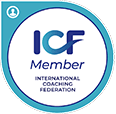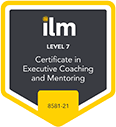The ability to create meaningful and effective relationships, with a wide variety of people quickly, in a way that helps them to open potential from within themselves and to new worlds and possibilities is one of the key coaching skills along with building and maintaining powerful rapport. “Rapport is vital to make sure that the dialog between coach and executive gets off the ground. The ‘chemistry’ of the pair must quickly establish trust and credibility; the executive must have confidence that the coach is not simply wasting time” (Lyons). In coaching presence and ability to be fully conscious and create a spontaneous relationship with the client in an open, flexible and confident way coach needs to be fully present and flexible, dancing in the moment. I often access my own intuition and “go with a gut”, stay open to not knowing and try to see many ways to work with a client, and chose in the moment what is most effective. One of my strengths is use of humour to create lightness and energy. And finally, it is very important to demonstrate confidence in working with strong emotions, self-manage and not be overpowered by client’s emotions.

Communicating effectively is the core of coaching practice and when used well coach can help bring self-awareness that leads to greater personal responsibility of the coachee. Communicating effectively means active listening, powerful questioning, direct communication and use of language. “Good listening skills on the part of the coach, together with the ability to deliver honest feedback, are crucial to keeping the dialogue grounded in reality” (Lyons). Powerful questions may be asked to surface submerged issues or may be asked to help the executive to reconsider some position or proposed course of action” (Lyons). Either way the right questions will either boost the client’s confidence if result in validation or will challenge client’s course of action to choose the best one. Effective coach uses positive language and clear feedback; metaphors that resonate well with a client and language that is appropriate and respectful to the client (ICF) also acknowledging cultural differences and diversity. Finally, an important skill for the coach is to offer challenge effectively and appropriately. This involves the ability to frame issues, focus thought through incisive questioning and feedback honestly but respectfully.
Planning & Preparation in relation to coaching approaches practise is very important if your client is to get the best from you so it is essential to put appropriate time and effort into it before the coaching sessions (review the notes from previous sessions, think about what approach would be best for next session, etc.). “With a sound appreciation of interpersonal dynamics, a good coach is a process person who can establish rapport; is informed about executive’s immediate environment; is honest and courageous in providing feedback; is a good listener; asks good questions; is visionary and analytical; and is a good planner who seeks follow-up and closure” (Lyons). Furthermore, the coach must strive to align dialogue in a direction of” achieving clients objectives. “The coach must be brave enough to urge the executive to move forward” (Lyons). Finally, “and most importantly, the full value of coaching activity can only be realised when a new behaviour is performed in a real world” (Lyons). For this to happen good coach needs to be a role model for goal setting, action planning and good at managing progress and accountability.
Ethical coaching practice with a coache’s commitment to a continuous learning and professional development are inherent ingredients of effective and successful coaching. A good coach needs an ethical position and rules of engagement or terms of reference within which to operate. Ideally, in their practice the coach should follow the client’s agenda. The relationship between coach and coachee should not be manipulated for the personal gain of the coach (financially, sexually, etc.) The coach should avoid encouraging dependency. The coach should be willing to re-contract when the context or needs of the coachee change. Always work within your competency and capacity. Take on the key element of Hippocratic oath – ‘do no harm’. What is key to me in my practice is to behave ethically and authentically, demonstrate personal integrity, honesty and responsibility – coaching with ‘Backbone and heart’ (O’Neill) and ‘fearless compassion’ (Hawkins and Smith), and respect and belief in a client. Both support and challenge are key for ideal coaching experience.
Coaching is becoming a profession. Therefore, the use of codes of conduct/ethics, contracting and supervision is very important for professionalisation and quality assurance of coaching. All the main professional coaching bodies including the ICF, EMCC and AC1 provide a code of ethics and a complaints process to encourage compliance with professional standards and ethical practice among its membership. They help create shared understanding within the profession and amongst coaches that there are clear standards that guide coaching and that help both coaches and clients see them as part of the professional discipline of coaching. The opportunity to join and be held accountable for ethical conduct builds clients confidence for coaches. Moreover, acknowledging the code demonstrates commitment to high standards of practice. The Global Code of Ethics – common code of conduct to establish a benchmark for ethics and good practice in coaching and mentoring industry as a joint initiative of ICF and EMCC forms a basis for the development of self-regulation for the coaching and mentoring profession. “Professional practice as a coach requires ongoing commitment to ethics with continuous awareness and learning in the process” (Brennan and Wildflower).
Written by Patrycja Orzeszyna © 2019 ZenCoaching.eu. All rights reserved.
To find out more about ZenCoaching.eu practice and schedule an exploratory coaching session with me please follow the link





